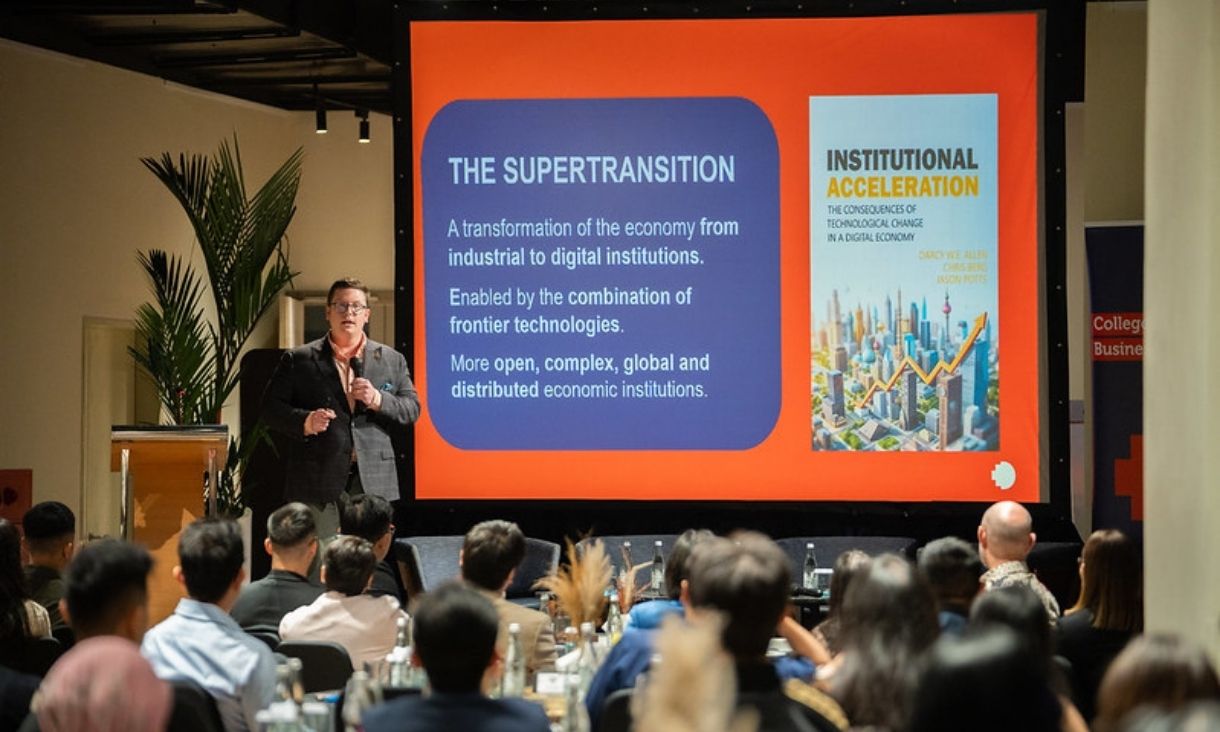Taking the UNIQLO experience to the next level: RMIT students pitch ideas to clothing giant
Last semester, 80 RMIT Impact Academy students in the College of Business and Law were challenged by UNIQLO with an industry-embedded business project in the semester’s Impact Academy course.
Fiona Notley joins RMIT
RMIT welcomes new Chief Operating Officer and Vice-President Fiona Notley, who brings to the role more than 20 years' experience in senior executive positions across education, sport, and health.
Revamped diploma updates logistics for a new generation
A refreshed version of RMIT’s Diploma of Logistics is focusing on the technology and organisational skills needed to make an impact in the fast-changing field of logistics.
“We are on the cusp of a technology-driven ‘supertransition’” - RMIT expert says deep economic change is occurring with profound consequences for business
RMIT economist Dr. Darcy Allen says the world is in an economic ‘supertransition’: profound economic change driven by the simultaneous combination of technologies.



